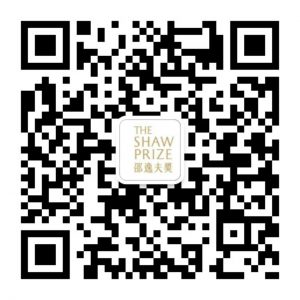以表彰他们所研发的光遗传学,一项彻底改革了神经科学发展的技术。
2020年度邵逸夫生命科学与医学奖平均颁予格罗・米森伯克 (Gero Miesenböck)、彼得・黑格曼 (Peter Hegemann)和格奥尔格 • 内格尔 (Georg Nagel),以表彰他们所研发的光遗传学,一项彻底改革了神经科学发展的技术。格罗・米森伯克是英国牛津大学韦恩弗莱特生理学讲座教授暨神经回路与行为中心主任。彼得・黑格曼是德国柏林洪堡大学神经科学赫蒂讲座教授暨生物物理系系主任。格奥尔格・内格尔是德国维尔茨堡大学 分子植物生理学教授。
要明白大脑的运作是一项艰巨的挑战。 鉴於人类大脑中有许多个亿的神经细胞,每个神经元可以与其他神经元进行数以千计的接触,导致天文数字的突触连接。感谢2020年度邵逸夫生命科学与医学奖得奖者:牛津大学的格罗・米森伯克、柏林洪堡大学的彼得・黑格曼和维尔茨堡大学的格奥尔格・内格尔,他们近年在科学技术方面的发现提供了有效的工具,让我们能够追踪和控制实验动物的神经网络。
Understanding the brain is a daunting challenge. Each of the many billions of nerve cells in the human brain may make thousands of contacts with other neurons, resulting in an astronomical number of synaptic connections. The tools that allow us to trace and regulate neural networks in experimental animals have emerged in recent years thanks to the discoveries of our Shaw Life Science Awardees for 2020: Gero Miesenböck of Oxford University, Peter Hegemann of Humboldt University, Berlin, and Georg Nagel of the University of Würzburg.
Neuroscientists had long sought methods to control the activity of individual nerve cells in order to understand the networks in which they communicate and define the processes they control. Direct activation of nerve cells by physical or chemical means had been used for over two centuries, but the dream had been to modify nerve cells genetically so that electrical signals could be induced or suppressed remotely, allowing a less invasive and more precise means of controlling the function of neural networks in an intact organism. The first key breakthrough came in 2002 with the development of an optogenetic tool devised by Gero Miesenböck. Using a naturally light-responsive protein, rhodopsin, which serves as the pigment on which we rely for vision, his team inserted the Drosophila (fruitfly) genes necessary to express the light-responsive rhodopsin into a vertebrate nerve cell culture.
格罗・米森伯克 (Gero Miesenböck) 在1965年於上奥地利州出生,现为英国牛津大学韦恩弗莱特生理学讲座教授暨神经回路与行为中心主任。他於奥地利因斯布鲁克大学取得博士学位后,於纽约纪念斯隆凯特琳研究所从事博士后研究(1992–1998),其后出任助理研究员和神经系统实验室总监 (1999–2004)。同时,他亦在美国康奈尔大学神经科学、细胞生物和遗传学担任助理教授。在出任牛津大学教授之前,他担任美国耶鲁大学医学院细胞生物、细胞与分子生理学副教授 (2004–2007)。格罗・米森伯克亦是奥地利科学院、德国科学院和英国皇家学会院士。
彼得・黑格曼 (Peter Hegemann) 在1954年於德国明斯特市出生,现为德国柏林洪堡大学神经科学赫蒂讲座教授暨生物物理系系主任。1975年至1980年间於德国明斯特大学和慕尼黑大学修读化学,并在1984年於德国马克斯普朗克生物化学研究所取得博士学位。他曾於美国雪城大学任职博士后研究员 (1985–1986)。返回德国后,他於马克斯普朗克生物化学研究所成立研究小组 (1986–1992),其后担任德国雷根斯堡大学教授(1993–2004),并於柏林洪堡大学出任教授 (2005–) 和神经科学赫蒂讲座教授 (2015–)。彼得・黑格曼是德国利奥波第那国家科学院院士。
